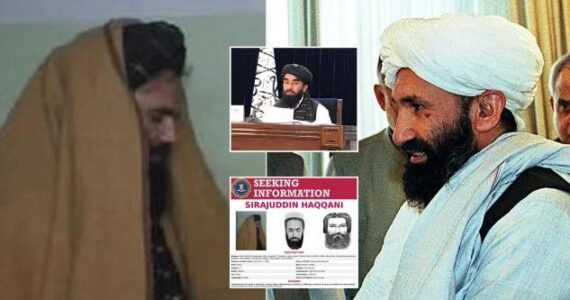
Taliban announces new government including FBI-wanted terror group leader
The Taliban have hand-picked a caretaker cabinet to rule Afghanistan, including the leader of an international terrorist organisation who is wanted by the FBI.
A spokesperson said the government will be led by Mullah Hassan Akhund, one of the founding members of the Taliban, with another co-founder as his deputy.
The acting interior minister will be Sarajuddin Haqqani, the head of a militant sub-group called the Haqqani network which was behind numerous bombings claiming the lives of hundreds of civilians over the past two decades.
It pioneered the recruitment of foreign jihadists and is thought to have enjoyed financial support from backers in Saudi Arabia, Iran and, at times, Pakistan.
Unlike the rest of the Taliban, it is designated by the US as a terrorist organisation, and Haqqani is specifically wanted for questioning by the FBI over the 2008 bombing of Kabul’s Serena Hotel, which killed six people.
US officials also believe he helped plan an assassination attempt on Hamid Karzai, the NATO-backed former president of Afghanistan.
As well as attacks on civilians, he reportedly oversaw the Taliban’s military offences against US and coalition forces from a base in northern Pakistan.
The interim prime minister, Akhund, is said to be seen as a religious leader rather than a military figure.
Akhund’s deputy, Mullah Abdul Ghani Baradar, led talks with the US and signed the deal which finalised America’s withdrawal from Afghanistan.
Appointed to the position of defence minister is Mohammad Yaqoob, the eldest son of Mullah Omar, who led the Taliban from its birth in the 1990s until his death in 2013 and ruled Afghanistan from 1996 until the US invasion of 2001.
Another veteran of the Taliban’s last era in government, Amir Khan Muttaqi, will serve as interim foreign minister.
He reportedly held talks just after the fall of Kabul last month with non-Taliban politicians, including Mr Karzai, about forming a government.
But all of the new ministers appear to be members of the hardline Islamist group, despite calls from across the international community for a more inclusive approach.
Source: Metro





